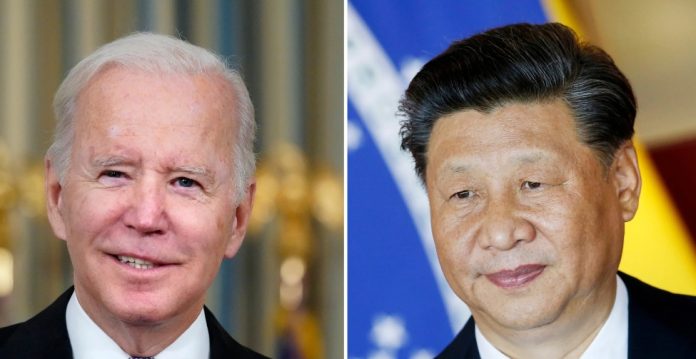According to the White House, US President Joe Biden and Chinese President Xi Jinping will meet in San Francisco this week to discuss ways to strengthen ties amid escalating global conflicts. The meeting of the leaders will also focus on solving problems related to the intersection of interests, such as illegal trafficking of fentanyl.
Jake Sullivan, the White House national security adviser, told reporters that Washington wanted “concrete results” from the meeting, and while he did not list them, he gave some hints. He said:
“We believe that there are areas where our interests overlap, like our efforts to combat the illicit fentanyl trade. There are also areas where we can more effectively manage competition — for example, by re-establishing military-to-military communications. And there are, of course, critical global issues that the two leaders will need to discuss, including Russia’s war against Ukraine and the evolving crisis in the Middle East.”
Last year, China cut off military correspondence with the US following a visit to Taiwan – a democratically governed island that China claims as its own – by Nancy Pelosi, then speaker of the US House of Representatives. The already tense relationship deteriorated further after the US shot down a Chinese spy balloon flying over North America in February.
The US was unable to contact the Chinese military during the balloon incident, which the Pentagon said did not result in Beijing collecting any classified data. China denies it intentionally flew the surveillance balloon over the US, insisting it was a weather instrument that went off course.
Sullivan stressed that communication between the US and Chinese militaries is a way to ensure that competition does not escalate into conflict, and that China has been “constructive” on the issue in dialogue ahead of the summit. He said:
“We will see what happens in San Francisco and the president will be able to report after the meeting, whether in fact, we’ve made progress on restoring military-to-military links.”
According to senior US presidential administration officials, the meeting is also expected to discuss global issues ranging from the conflict between Israel and Hamas to the war in Ukraine, North Korea’s ties with Russia, Taiwan, human rights, artificial intelligence, and “fair” trade and economic relations.
Sullivan notes that Biden will raise the issue of stability in the Middle East, adding that Beijing should be interested in de-escalating the situation in the Middle East. He says Biden will stress that Iran’s actions leading to “escalation and destabilisation” are not in China’s interests. “And the PRC, of course, has a relationship with Iran, and it has the ability, if it wants to, to bring those considerations directly to the Iranian government”.
Sullivan was less candid when asked how Biden would deal with Xi on the Taiwan issue. Although the US does not officially recognise Taiwan’s statehood, the Biden administration has stepped up military and diplomatic support for Taiwan seeking independence from Beijing, which has publicly said it could take the island by force.
Sullivan said that in his meeting with Xi, Biden would “lay out a vision” for achieving and maintaining peace and stability in the Taiwan Strait. He did not make specific comments, including when asked whether Biden would urge Xi not to interfere in Taiwan’s upcoming presidential election in January.
The White House did not say what specific results it hoped to achieve on the fentanyl issue, acknowledging only that the issue was “critically important.” White House press secretary Karine Jean-Pierre told reporters at the same briefing:
“We are certainly focused on making sure that we protect Americans and American families, so obviously this is an important agenda item the president wants to have.”
According to the US Centers for Disease Control and Prevention, more than 100,000 deaths per year from 2020 are related to drug overdose, and about two-thirds of them are related to fentanyl.
The US Drug Enforcement Administration reports Mexico and China are major sources of fentanyl and related substances shipped directly to the United States. Almost all of the precursor chemicals needed to produce fentanyl come from China.
Last month, the Biden Administration announced a series of indictments and sanctions against Chinese companies and executives accused of importing these chemicals. In addition, the administration has launched a nationwide crackdown on fentanyl supply chains, including disrupting the supply of legal goods such as pill presses, moulds, and chemicals used to manufacture fentanyl and other illicit synthetic drugs.
